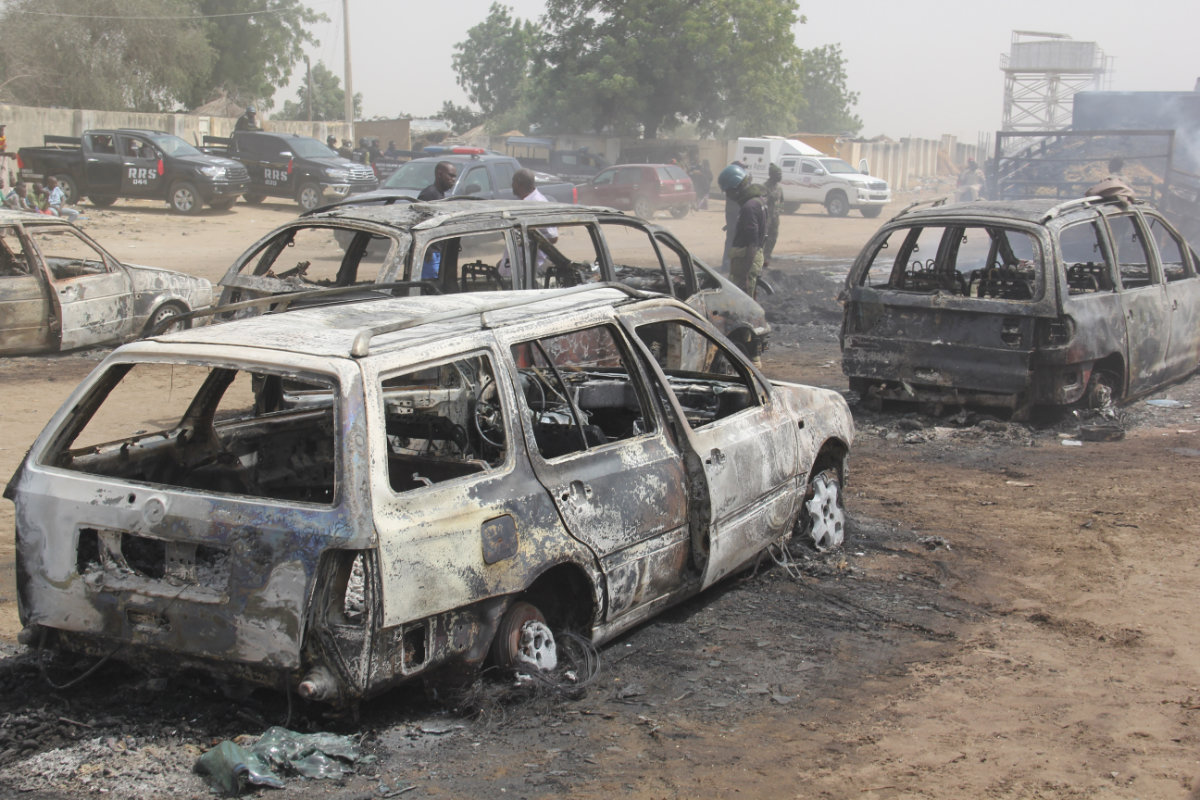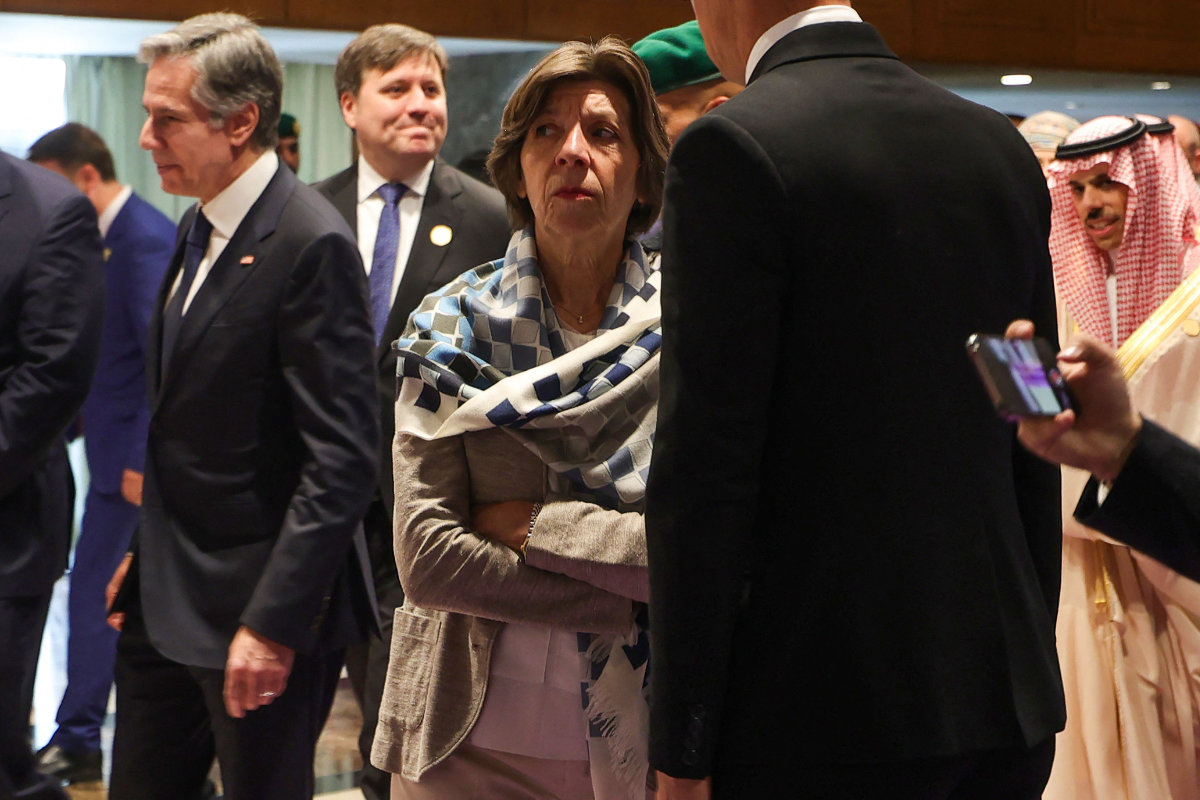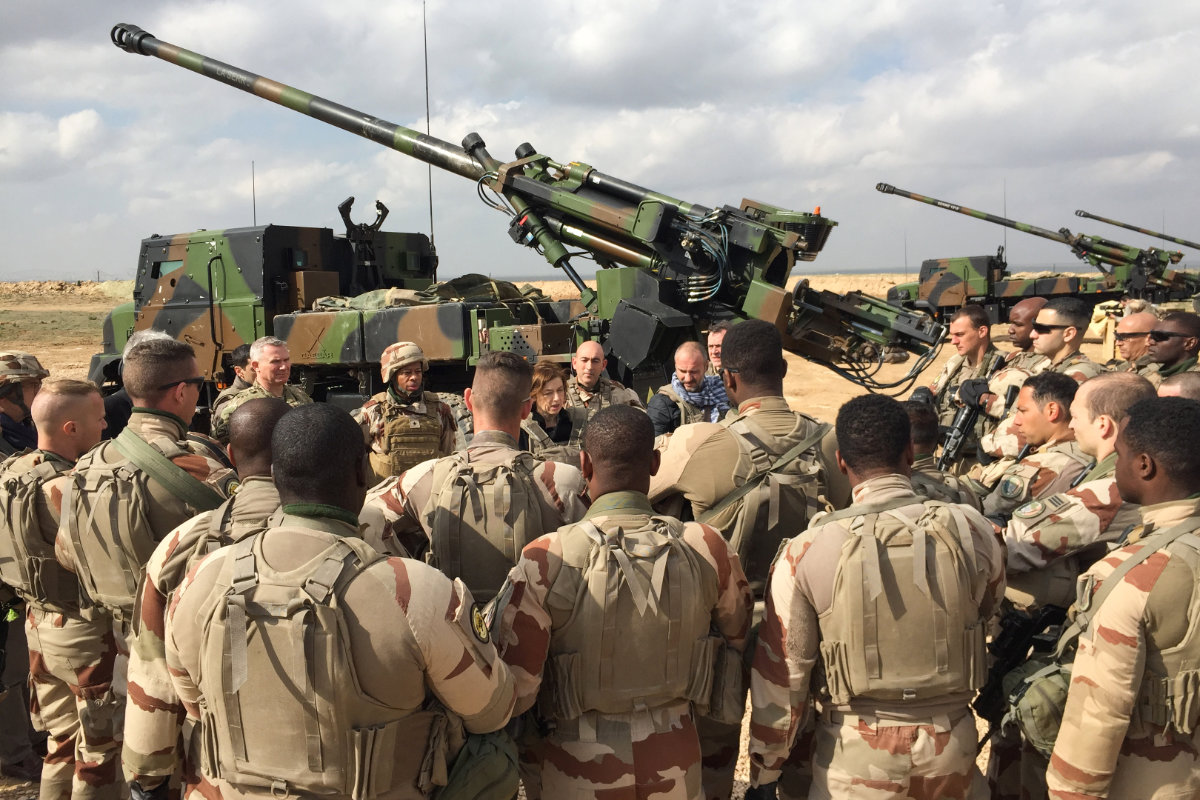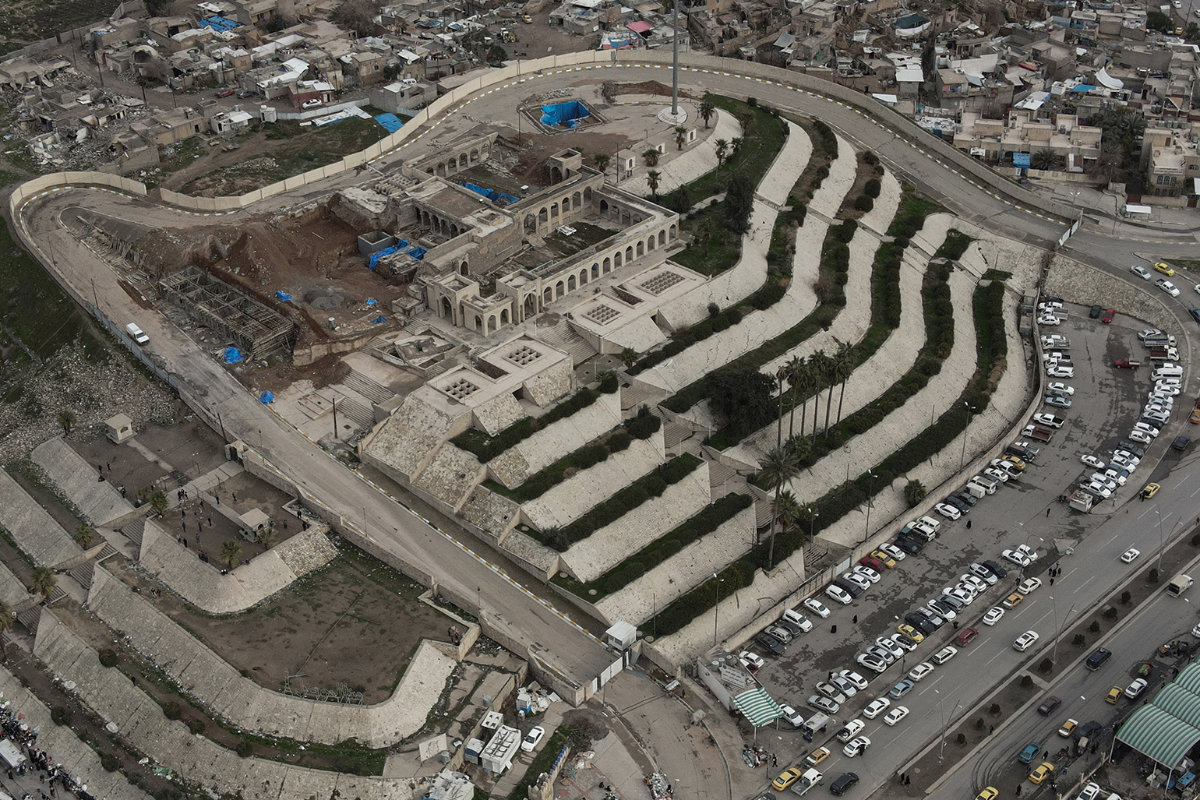PARIS: On the eve of the Ministerial Meeting of the Global Coalition Against Daesh in Riyadh, Catherine Colonna, the French minister for Europe and foreign affairs, said the coalition’s work remains vitally important because the terrorist group “has not abandoned its agenda.”
All members of the coalition participated in the meeting, organized by Saudi Arabia and the US. Established in 2014, when Daesh was at the peak of its power, the coalition has since achieved the bulk of its objectives, having liberated all territories held by the group, first in Iraq in 2017 and then in Syria in 2019.
However, French authorities believe the coalition remains relevant, as the threat has merely changed in nature. The French government has said Daesh “remains a dangerous terrorist actor” in many parts of the world, including Africa, Afghanistan, and even Syria.

Burnt cars are seen in Auno village in Nigeria's restive Borno state after an attack by suspected Daesh terrorists on February 9, 2020. The gunmen also killed, burned and looted before kidnapping women and children. (AFP)
The group “is not currently in a strong enough position to carry out new attacks on our territory” as it did in 2015 and 2016, French authorities said in a recent statement, referring to a spate of mass casualty events.
However, it seeks to take advantage of continued instability, particularly in Syria, but also in certain African countries and Afghanistan, “to rebuild its bases and regain the ability to recruit and project new threats.”
“We are dealing with an group that has not at all abandoned its global agenda,” it added.
The Riyadh meeting was viewed as an opportunity to conduct a security evaluation that will allow coalition military personnel to present their perception of the threat.

French Foreign and European Affairs Minister Catherine Colonna at the meeting in Riyadh on Thursday. (AFP)
Furthermore, the French government believes the focus on the war in Ukraine “should not overshadow the fight against terrorism,” otherwise “we would lose the gains we have made over the past ten years, investing human lives and billions of euros and dollars, which would be totally irresponsible.”
Colonna used the Riyadh meeting to press home her government’s stance, notably emphasizing how the Levant region, the birthplace of Daesh, must remain a priority for the coalition.
She also used the occasion to convey how the threat has evolved and how the response must evolve accordingly.

In this photo taken on February 9, 2019, French soldiers stand prepare to join the "final battle" against Daesh forces from the last scrap of territory it holds in eastern Syria. (AFP)
“It is evident that we are dealing with a group that has voluntarily returned to clandestinity rather than being forced into it” and that it maintains its intention “to reposition itself in a strategy of harassment,” the French government said.
“The stakes are different today, and they consist of preventing the territories that were under the influence of Daesh from falling back under its sway, which requires us to make a massive stabilization effort.”
In this regard, Colonna was keen to emphasize the magnitude and consistency of the French commitment to stabilization, as, since 2017, the Ministry of Europe and Foreign Affairs alone has mobilized 302 million euros, including 170 million euros for Iraq.

This picture taken on February 8, 2023, shows the reconstruction of the Nabi Yunes mosque in Mosul, Iraq, which was destroyed by Daesh terrorists in 2014. (AFP)
egarding logistics, the meeting focused on three geographical themes — the Levant, specifically the Syrian-Iraqi zone that lies at the heart of the international coalition’s traditional activities, Africa, with a significant focus on the Sahel-Saharan region, and finally, Central Asia, where Afghanistan is a key concern.
Ministerial interventions and several stabilization announcements also took place, along with a presentation of the coalition’s diverse activities through its various working groups on combating Daesh’s narrative.
The meeting provided an opportunity for Colonna to hold bilateral talks with her counterparts, including Saudi Arabia’s Prince Faisal bin Farhan, Morocco’s Nasser Bourita, Lebanon’s Abdallah Bou Habib, and several African ministers.
After Riyadh, Catherine Colonna traveled to Doha, marking a milestone in the framework of the strategic dialogue between France and Qatar, which covers all areas of the bilateral relationship.
In this regard, Paris emphasizes that “the relationship with Qatar has been extremely strong and on the rise for several years.”

















